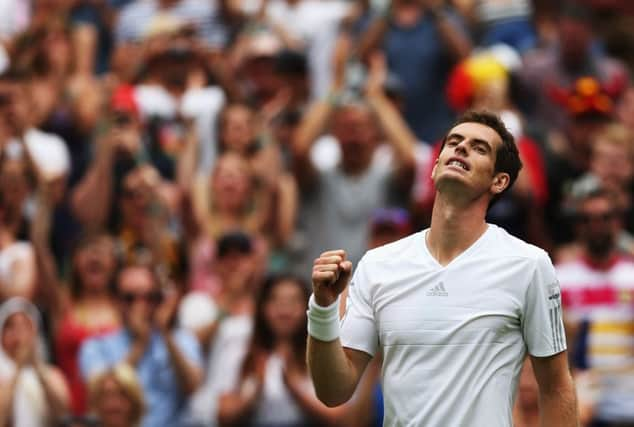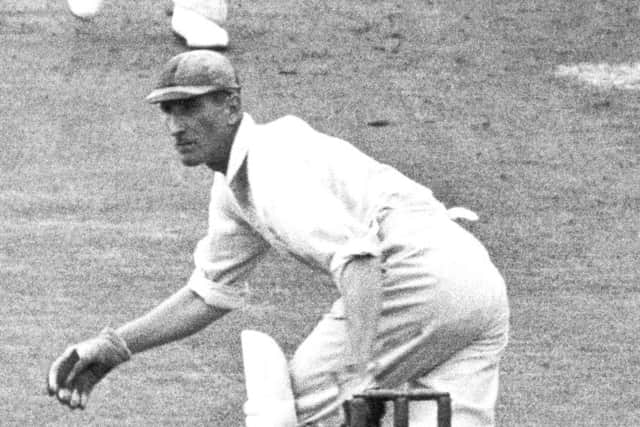Allan Massie: Sporting glory not fed by deprivation


It used to be a regular event. Sometime in Wimbledon fortnight when all our men had been eliminated, newspaper editors would commission articles deploring the middle-class dominance of British tennis and declaring that we would never have a men’s champion again till someone with “fire in his belly” emerged from a working-class or (later) ethnic background to head the British challenge. The BBC’s Today at Wimbledon programme would join the chorus.
It made for lively journalism, even though the suggestion that a deprived or rough background was required for a player to have the true competitive spirit always seemed pretty stupid. It did so particularly in the late Seventies when John McEnroe came on the scene. Nobody was ever more stroppy, determined and combative than McEnroe, but he wasn’t exactly reared on the wrong side of the tracks. The son of a New York lawyer and a college student when he first played at Wimbledon, his background was every bit as comfortable as his tennis was brilliant and his will-to-win formidable.
Advertisement
Hide AdAdvertisement
Hide AdActually tennis has everywhere been for the most part a middle-class sport. Though some of the great players have endured tough times, Novak Djokovic for instance being a boy when we were bombing Belgrade in the Kosovo war, few have ever come from deprived backgrounds. Djokovic’s parents ran a fast-food shop, and, like almost all top tennis players today, his talent was spotted early and he attended a tennis academy, in his case in Germany.


Character has very little, if anything, to do with class, and it is the marriage of character to natural ability which makes for champions. So-called “hungry” fighters are not necessarily people who suffered poverty or what is called “social exclusion” when they were young. Admittedly there are some sports, notably boxing and football, which have traditionally been dominated by people from poor, even wretchedly poor, backgrounds, and we still think of football as a working-class sport, even though its top players become millionaires and season-tickets at big clubs are priced out of the reach of the game’s traditional support.
Champions, however, come from all sorts of backgrounds. An upbringing in Murrayfield and education at George Watson’s might fairly be described as comfortable, a long way from any ghetto or housing scheme. Nothing in it obviously explains the ambition and commitment which made Chris Hoy a winner of seven Olympic medals. Any attempt to determine what makes a champion must look at the individual, not at the environment in which he or she grew up. Jim Clark, Scotland’s first and, some would say, greatest Formula One motor-racing champion came from a wealthy Berwickshire farming family and an independent school education at Loretto. How likely was that?
It’s arguable of course that the desire to escape from poverty gives someone a greater incentive to succeed in sport as in other areas of life. Likewise it’s arguable that a harsh upbringing may add steel to the character, and doubtless it often does. This was certainly what those who asserted that Britain would never have a Wimbledon champion till the game shed its comfortable middle-class suburban image, and was played by working-class kids, seemed to believe. Likewise they appeared to hold to the converse: that anyone from a comfortable middle-class background had found things too easy and so lacked determination when the going got tough. These were of course mere prejudices, unsupported by evidence.
Cricket in England has always been a game for all classes – surprising as this may seem to some. Arguably the most ruthless cricket ever played by any England XI was in the famous Bodyline series of 1932-3. The tactic of short-pitched fast bowling to a packed leg-side field was developed with the aim of curbing Don Bradman who had averaged around 100 in the 1930 Ashes series in England. The architect of Bodyline was England’s captain, Douglas Jardine, a Scotsman educated at Winchester and Oxford University, disliked by the Australians as an upper-class English toff. The executioner of Bodyline was Harold Larwood, a Nottinghamshire miner. Jardine and Larwood worked in perfect harmony, fixed on winning and indifferent to the outcry their tactics provoked. Without Jardine’s ruthlessness there would have been no Bodyline; without Larwood’s skill and commitment the tactic would have failed. No England captain has ever been more single-minded in pursuit of victory than the upper-class Scotsman.
The media argument that no British player would win Wimbledon till a working class hero was found wasn’t even stilled in the Nineties when at last a British player with a reasonable chance of taking the title emerged. This was partly because Tim Henman appeared to be the epitome of the south of England gentlemanly gin-and-tonic middle-class, partly because he never quite did it.
And then, thank heaven, came Andy Murray whose tennis was good enough to give us the champion we longed for, and surely to silence the argument and make those annual newspaper articles superfluous. Admittedly Murray was in a sense an outsider, being a Scot who had pursued his tennis education in Spain, having turned aside from the Lawn Tennis Association’s coaching programme. On the other hand he wasn’t what the critics had been calling for. He didn’t come from a deprived background or the wrong side of the tracks, but from a respectable middle class family and a small and agreeable Scottish town. He showed that what matters is skill and character, no matter where one is developed and the other moulded. Tennis intelligence and a will-to-win brought Murray the Wimbledon title in 2013 and may do so again this year. If he doesn’t succeed, that will have nothing to do with his background or his opponent’s background. It will be only because he came up against someone playing better tennis on the day. Class has nothing to do with it – only the class displayed on the court.